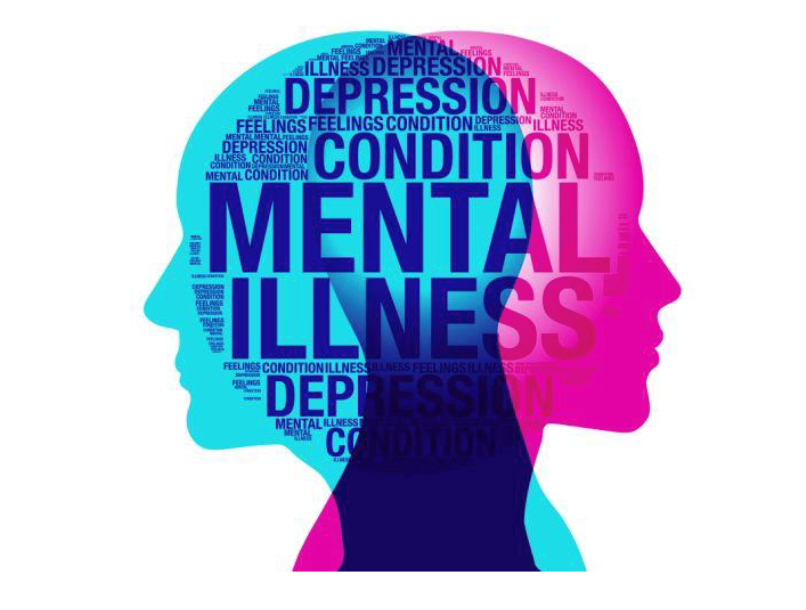Understanding the Impact of Exercise on Mental Wellness and Overall Wellness
In the realm of psychological health and total health, the importance of workout is a diverse topic that requires expedition. Past its physical advantages, the influence of exercise on one's psychological health and wellness has been a subject of growing passion and research. The intricate interplay in between exercise and mental wellness unveils a range of positive end results that prolong far past the boundaries of a gym or a running track. As we navigate with the complexities of this connection, a much deeper understanding of how exercise influences our mindset and total health arises, clarifying the extensive ramifications it holds for our day-to-day lives and long-term health.
Advantages of Workout on Mental Health

Routine physical workout has been revealed to considerably boost mental wellness end results in people of all ages. Involving in routine workout not only advantages physical well-being yet also plays an essential duty in enhancing psychological health.
In addition, exercise has been connected to enhanced cognitive feature and overall brain health (Mental Health Services). Research studies have revealed that normal exercise can boost memory, decision-making, and focus abilities. It can also contribute to a reduction in the danger of cognitive decrease as individuals age. Furthermore, workout advertises far better sleep patterns, which are vital for keeping good mental health and wellness.

Connection In Between Exercise and Stress
Exercise serves as a potent system for reducing tension and promoting mental wellness by assisting in the launch of endorphins and fostering a sense of leisure and restoration. Exercise promotes the production of endorphins, usually referred to as the body's all-natural pain relievers, which act as state of mind lifts and stress relievers.
Engaging in physical activity also provides a distraction from day-to-day stress factors, allowing individuals to focus on the here and now moment rather than ruminating on sources of tension. Furthermore, exercise can improve self-esteem and confidence, supplying a sense of achievement and control that can combat feelings of vulnerability usually related to tension. By including workout right into a regular routine, people can successfully handle stress levels, bring about enhanced psychological health and general lifestyle.
Impact of Exercise on State Of Mind
The relationship in between workout and mood is well-documented, with many studies highlighting the favorable effects of physical activity on psychological health. Furthermore, normal workout can lead to improved self-confidence and a feeling of accomplishment, which can even more boost one's total state of mind.
In addition, the impact of workout on state of mind expands beyond just the instant post-workout duration. Research study recommends that people who preserve a constant exercise routine are more probable to experience long-lasting renovations in their mood and psychological state. This can be attributed to the structural modifications in the brain that happen as a result of regular exercise, such as boosted connection in between mind regions in charge of controling emotions.
Exercise and Cognitive Function
Many research studies have actually shown the substantial effect of physical activity on cognitive function, highlighting the elaborate connection between workout and psychological processes. Engaging in regular workout has been shown to boost different aspects of cognitive function, consisting of memory, interest span, analytic skills, and general mental skill.
Moreover, consistent physical task has actually been linked to a reduced threat of cognitive decrease and neurodegenerative diseases such as Alzheimer's. Research studies recommend that people who keep an active lifestyle throughout their lives experience slower prices of cognitive decline contrasted to those who are less active. Generally, the proof overwhelmingly sustains the notion that routine workout is not only useful for physical health however also plays a crucial duty in protecting and improving cognitive function.
Strategies for Integrating Workout
Embracing an organized method to integrating physical activity into everyday regimens can dramatically boost the probability of keeping a regular exercise program. Furthermore, integrating workout right into existing regimens, such as strolling or cycling to function, taking the stairways instead of the elevator, or scheduling routine workout sessions, can assist make physical activity a habitual component of everyday Resources life.
An additional valuable method is to locate tasks that are satisfying. Whether it's dance, swimming, yoga additional info exercise, or biking, involving in tasks that bring satisfaction boosts the possibilities of sticking to the workout routine in the future. Furthermore, differing the sorts of workouts and alloting time for both aerobic and strength-training tasks can protect against dullness and supply an alternative method to physical conditioning.
Incorporating workout into social activities, such as signing up with a sports team or workout team, can likewise foster a feeling of community assistance and liability, making it easier to remain committed to normal exercise. By implementing these approaches, individuals can develop a sustainable and fulfilling workout routine that advertises mental health and wellness and overall health.
Final Thought
Finally, exercise has various advantages for mental health and general health. It can assist lower tension degrees, enhance state of mind, and enhance cognitive feature. Including regular physical task right into one's routine is vital for promoting psychological health. By comprehending the influence of exercise on mental wellness, individuals can take aggressive steps to prioritize their physical activity and gain the favorable effects on great site their emotional and psychological state.
